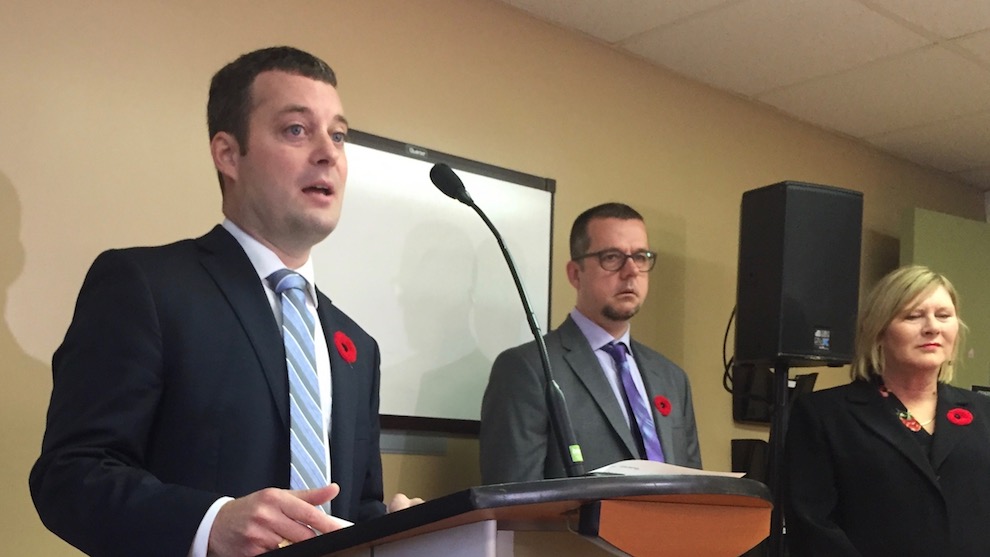Opioids
New funding will eliminate wait-list for opioid treatment: health minister
Randy Delorey says 470 new treatment program spots will be added within the next six months

caption
Minister Randy Delorey, left, said Nova Scotia will invest $800,000 into opioid treatment programs.
caption
Health Minister Randy Delorey, left, said Nova Scotia will invest $800,000 into opioid treatment programs.The Nova Scotia government is investing $800,000 into opioid treatment programs, adding 470 new spots and getting rid of the wait-list over six months, said Health Minister Randy Delorey on Wednesday.
Delorey spoke at a news conference at the Nova Scotia Hospital in Dartmouth.
“We are expanding the treatment program to more communities and we expect even more Nova Scotians will come forward as a result,” he said.
Delorey told reporters Nova Scotia Health Authority plans to open three new program sites in Antigonish, New Glasgow and on the South Shore. These will add to the sites that currently exist across the province. Related stories
The government will also invest $70,000 to provide addictions advice for primary health-care workers across Nova Scotia via telephone. Another $10,000 will go towards opioid addiction training for emergency room staff.
These investments are part of Nova Scotia’s Opioid Use and Overdose Framework, which was released in July. It deals with illicit opioids such as fentanyl, as well as the over prescription of opioids by doctors for chronic pain.
According to the framework’s website, Nova Scotia has averaged 59 deaths a year from opioid toxicity since 2010. That number is on track to be repeated this year, as Dr. Robert Strang, chief medical officer of health, said the number of deaths from illicit fentanyl is increasing.
It caused four deaths last year, and two so far this year.
“One of the real concerns is that any street drug has the potential to be contaminated and raises the risk of overdose for a range of people,” he said.
Strang said that the 470 new program spaces will build upon the 1,600 spots currently available across the province.
Cindy MacIsaac, director of Direction 180, a community-based methadone clinic in Halifax, said it is essential to have these spaces available when people need them.
“[When] that window opens and they call, and you can say, ‘Come on in, we’re going to get you assessed and we’re going to get you in to see the doctor right away,’ well, there’s hope,” she said at the news conference.
She added that if a person calls and Direction 180 doesn’t have space, they may not hear from that person again for months. This decreases their chance of recovery.
Dr. Sam Hickcox, a family doctor and addictions specialist for the NSHA, said the new funding will help front line health-care providers in two ways.
The first way, he said, is by teaching them methods of prescribing opioids safely, especially when it comes to chronic pain. Secondly, he said having access to an addiction specialist on the phone will help physicians manage treatment more easily.
“That hasn’t been there,” he said at the news conference. “Family physicians and nurse practitioners have felt, often, quite alone … and unsupported. So it’s going to be tremendous to have that.”
Strang said the government is still working to implement the framework.
“It’s a complex solution,” he said. “No one component in and of itself is going to make all the difference.”
